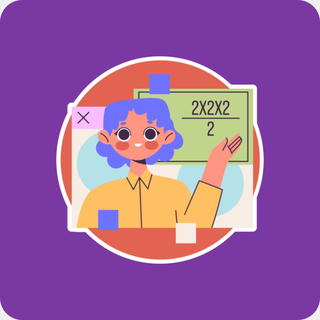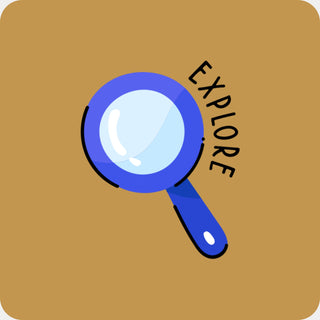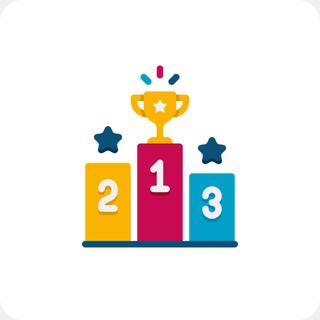“Reflection is one of the most underused yet powerful tools for success” - Richard Carlson
As we stand at the brink of a new year, it is a good idea to analyse the old one, reflect upon the changes and mistakes and learn from them. This introspection serves an additional purpose of helping you see the positives and will only make you feel more grateful and pumped up for the future.
What are the three aspects of self-reflection we must remember
- Mindfulness: It is closely related to our decision-making and growth as individuals. Learn to stay in the present and refrain from thinking too much about the future, as tempting as it would be. Reflecting on your past will reveal patterns that you can use to avoid making the same mistakes as in the past. Enjoy the positive fruits of your efforts, as well, for life is a mix of highs and lows. This is also the right time to let go of bitterness and move on.
- Forgiveness: As a part of letting go of negative feelings, forgive those at fault and do not blame yourself for what went wrong. Concentrate only on things that matter to you and persevere to reach those goals.
- Gratitude: Be grateful for all the good opportunities that came your way in the past year. Each experience, irrespective of whether it is good or bad, has played a vital role in enriching and enhancing your personality. Your struggles mould and refine you with the passage of time. Appreciate how far you have come from the starting point and look ahead.
Why is self-reflection important?
Introspection or looking inward gives you time to reflect on the past, analyse it in the present and plan properly for the future. It plays a key role in propelling us towards our goals, as reflection of the past yields important insights that will spell out the dos and don'ts when you are moving towards your goal. It transforms you into a resilient person, gives you clarity of thought and influences your social interactions, supports friendships and significant relationships.
How to practice self-reflection?
- Ask yourself the right questions: When you start this process, question yourself regarding what you want, why and other basic points and gain insight on each facet completely.
- Practise journaling : Spend 10 minutes everyday and reflect on all happenings through the course of the day. Take note of the things you're grateful for, areas where you could have done better, and moments where things went wrong. Over a period of time, this will give you enough data to identify patterns, which in turn, will help you make necessary changes wherever needed.
- Analyse your emotions: When you analyse your day during journaling, make note of various positive and negative emotions that you feel. The benefit of naming emotions is that it will help you grasp and tackle the emotion better.
- Define clear goals and monitor progress: With the right inputs from the review process, you can reach your target faster. However, deviation from the goal can happen multiple times, hence it is imperative that you constantly monitor essential metrics and make changes. Self-reflection plays a pivotal role in analysing missteps and taking remedial actions.
- Learn from your mistakes: Comprehend the patterns that lead to errors and face them bravely. Make necessary changes in order to make well-informed decisions in the future. For instance, you can identify the cause of deviation from your target and rectify it. You can find out what upset your friend and avoid discussing the particular topic in the future.
- Meditation and yoga: The inherent nature of meditation and yoga allows for self-reflection along with the activity. There are various approaches to meditation such as guided style which focusses on a relaxing experience or place, while mindfulness meditation prioritizes staying in the present without distractions. Another category is mantra-based meditation, where you utter a calming phrase or word.
What are the benefits of self-reflection?
There are some tangible benefits of self-reflection, such as:
- Acquire better understanding: It will help you understand your personality, aspirations and emotions better. It acts like the bridge between you and your inner self and helps you be your own guide. It aids you in tracking your position with respect to your goals, which can be of great use when you are unwavering in the pursuit of your goal.
- Gain new perspectives: When you go about your daily life, it becomes hard to think differently due to lack of time. However, some situations arise where you are forced to examine different perspectives in order to solve the problem efficiently. You can assess and compare yourself with a fresh outlook. You will learn to think of new methods concerning problem-solving, thereby becoming a more balanced, well-rounded person.
- Boost in self-esteem: Working on mistakes is fine, but there is another part to self-reflection, which is identifying positives in life. This exercise will show you how far you have come from the starting point in anything, be it work, studies or even hobbies. Consequently, it boosts your self-confidence and self-esteem.
- Better decision-making skills: This process lets you recognize the rationale between your own ideas and actions. For instance, you can learn how to manage your time better by evaluating how you spend your day currently and eliminating or reducing certain activities that take too much time.
Spend time everyday to self-reflect, even if it is as little as 5 minutes. If you are not able to practise it throughout the week, at least take time off during the weekend to reflect on the past week. Do not be too harsh on yourself and take it slow and steady when it comes to making changes for progress. Use the holidays judiciously, reflect on the year gone by and buckle up for the one ahead.



























